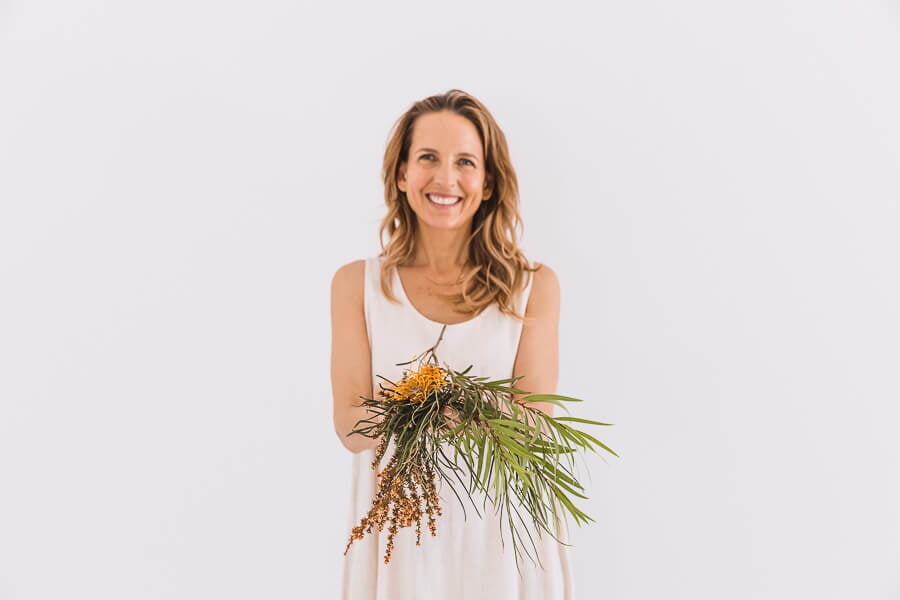
Synthesis Organics founder a finalist at 2021 Australian Industry Organic Awards
We are proud to announce that our very own Theme Rains, founder and formulator at Synthesis Organic, made it to the national finals of the national Australian Organic Industry Awards.
The coveted finals were held on Friday 12 November on an online event, where Theme was named a finalist in the ‘Organic Woman of the Year’ category.
Australian Organic Limited Chief Executive Officer, Niki Ford, said the Awards were designed to celebrate excellence in the organic industry and applauded the winners for their leadership in, and commitment to, the nation’s rapidly growing $2 billion-plus organic industry.
Melissa Brown, Chief Viticulturist and co-owner of Gemtree wines, so deservedly won the category - huge Congratulations, Melissa. We are continually inspired by the ethical integrity you hold in your certified organic, biodynamic, preservative free and vegan friendly wine business.
A huge congratulations to the other deserving award-winners including:
- Arcadian Organic & Natural Meat Co
- Organic Merchant
- Meluka
- Angove Family Winemakers
- Honest To Goodness
- Rachel Davis, National Key Account Manager, Eco-Farms
- Mick Dan, Co-Founder and Farmer, Good Harvest Organic Farm
- Katrina Kehoe, Kehoe’s Kitchen
- Dooley-Crighton Bellamy, Co-Founder, Bellamy’s Organic
To celebrate placing as a national finalist, we asked Theme some questions about what being the highest certification of organic means to her.
Congratulations! What does this recognition mean to you?
I feel absolutely honoured to have been recognised as a finalist for such a prestigious industry award. Reaching the national organic standard for skin care is no small feat; it adds enormous additional time and cost to each of our product creations, yet I am dedicated to doing that as I believe so strongly in the certified organic standard.
I have dedicated my life’s work to creating certified organic products for others to enjoy and be nurtured by. This recognition feels like a culmination of life events for me, from 15 years ago when I created some of the very first certified organic skincare and wellness products in Australia, through to founding and running Synthesis Organics as we exist today.
Why choose ACO over other organic certifications?
Achieving ACO standards definitely gives us a competitive edge over those who only claim to be natural or organic, without any certification at all. Further, as we know, not all certifications are created equal and ACO has always set levels of integrity beyond the other certification bodies which the majority of our customers factor into their decision-making when comparing to other beauty brands.
Beyond being certified organic, the quality and quantity of organic ingredients that I include in our products significantly contributes to our efficacy and benefit claims, with skin doctors in the U.S. asserting they get better results with our organic skincare products compared to some widely known non-organic cosmeceuticals.
What does being part of the organic industry mean to you?
My moral compass dictates that offering only certified organic products is a critical, non-negotiable aspect of my business, because when we adhere to Certified Organic standards, we actively contribute to the healing of ourselves as individuals and of the Earth through practices like sustainable growing, regenerative agriculture, small batch chemical-free production and education.
What do you see as the biggest opportunity for the industry?
I feel that the organic industry in Australia could be an even bigger leader in raising sustainability awareness. In the U.S., they now have a new class of USDA Organic which is “Regenerative Organic.” With Australia having the largest amount of land dedicated to organic farming, this could be a tremendous opportunity for the organic industry here because more and more consumers want to know that they are doing something to mitigate the effects of climate change.
The other equally big opportunity for the industry is to make itself synonymous with ‘wellness’ culture. The organic movement was really at the forefront of the wellness industry in so many ways and I feel it is important for consumers to be reminded that wellness starts with how we grow our food, topical ingredients and plant based medicines, which then carries on to other consumer goods: skincare and aromatherapy in our instance.
Technology also presents a huge opportunity for transparency and traceability, which consumers are increasingly demanding across all industries. Synthesis Organics has actually worked with technology startup Storybird to create a traceable supply chain online, where consumers can view source and production details of the ingredients in their products through scanning a QR code.
What do you think are the biggest challenges facing the industry?
The ACO certification process is Australia’s strongest regulatory defence against greenwashing, which gives Synthesis Organics customers, producers and myself peace of mind that we use genuine organic ingredients, while supporting a value chain that respects the earth and values the health of our fellow human beings.
That said, I believe that greenwashing is still the biggest challenge to our industry, taking many sly shapes and forms, from misleading product statements such as the lack of regulations around products using the term “organic” without having to provide proof of certification, to the erosion of confidence in the organic certification process that this inevitably leads to. As the industry continues to grow, it is more important than ever to ensure the integrity of the certification process and to educate the consumer as to why it’s so important, which is what we aim to do once we launch the Synthesis Organics HQ by welcoming visitors on-site to learn about the entire process.
Secondly, there are a lot of great brands, entrepreneurs and companies out there who do everything right, but just can’t afford the additional requirements to become Certified Organic. As the industry grows, I hope that we can find ways to lower the cost barrier of entry without lowering any standards such as getting more government assistance to support growers, producers and makers to make the shift.
What do you think consumers need to know about the organic industry?
While according to the Australian Organic website, 62% of consumers recognise the Australian Organic bud certification logo as an organic product, there still exists a misunderstanding of different certification standards. The word ‘organic’ is very loosely thrown around, which makes it hard for consumers to differentiate between different organic certifications.
Additionally, as price dictates purchase decisions, more education would likely make consumers more aware why certified organic producers charge higher prices than other brands, and why this price is a small one to pay for the long term health of people and the environment.
Lastly, there is an ongoing education piece around why people should choose organic in the first place, from supporting a cleaner environment and a sustainable future, to animal welfare and big corporations' accountability.






Leave a comment
This site is protected by hCaptcha and the hCaptcha Privacy Policy and Terms of Service apply.